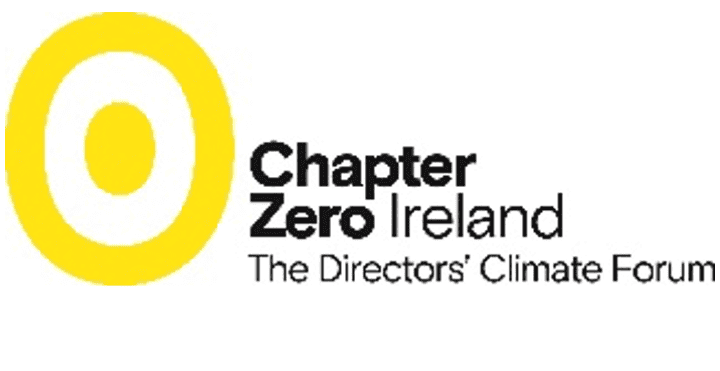Ireland is a member state of the European Union. This section is to be read in conjunction with the above EU section. Ireland is a common law jurisdiction and directors’ duties derive from both case law and statute.
Summary
There are currently no Irish statutory provisions which expressly require directors generally to take account of climate-related risks or opportunities in the discharge of their fiduciary duties. However, to the extent that climate-related matters affect the company's interests, directors must consider such matters as they discharge their duties.
While there is no specific Irish case-law requiring directors to consider climate matters in discharging their duties, climate related litigation has been successfully brought against the Irish government over failures to comply with climate legislation.1
Under EU law and relevant Irish implementing law there are specific climate-related disclosures required of certain large companies and corporate financial services firms, which are made by the directors currently on a comply or explain basis. As the Corporate Sustainability Reporting Directive (CSRD) comes into effect, these disclosure requirements will materially increase, and require companies to adapt their operations in response to climate and wider ESG considerations.
Accordingly, the nature and extent of the integration of climate-related considerations by directors in the discharge of their duties depends on the sector and business in which the company operates. For example, a company in the financial services sector may primarily focus on climate-related financial risk disclosure while a food and beverage manufacturer may be more concerned with the implications of policies on carbon emissions reduction.
Directors of Irish companies should note that:
- companies operating in certain sectors will be required to comply with particular climate-related legislation which is specifically relevant to their operations;
- relevant incoming and proposed EU legislation will, once it comes into force in Ireland, increase the breadth and scope of specific climate-related considerations for directors;
- in discharging their duties, directors should carefully evaluate the extent to which climate-related issues should be integrated into their governance roles.
Irish government policy and legislation on climate
The Irish government has identified climate change mitigation and adaptation as major policy priorities as evidenced in Ireland’s Climate Action Plan,2 National Development Plan3 and National Adaptation Framework.4 These developments, while not directly applicable to directors, are likely to change the commercial, physical and social context in which companies operate, giving rise to risks and opportunities. Ireland has a track record in enacting legislation supporting transition to a low carbon economy; for example, enacting the Fossil Fuel Divestment Act 2018, making Ireland one of the first countries in the world to withdraw public money from investment in fossil fuels.5
Ireland enacted a net-zero emissions target in law through the Climate Action and Low Carbon Development (Amendment) Act 2021, which includes a goal of net-zero greenhouse gas emissions by 2050, a 51% reduction by the end of 2030, and the introduction of carbon budgets, required in order to meet the greenhouse gas reduction goals, and sectoral emissions ceilings, which were approved in April and July 2022 respectively.6 The Irish government’s policy indicates how it intends to meet this target, including increased investment and sector-specific targets for renewable energy generation, agriculture, transport, electrification and buildings, progressively increasing carbon taxes under the Finance Act 20207 and implementing a just transition framework. The Climate Action Plan 2023 details the emissions ceilings available for each of the following sectors - electricity, industry, built environment, transport, agriculture and land use, and puts forward specific policy solutions to work towards these limits. This environment may give rise to opportunities for companies seeking to tap into new markets, but also present risks for companies in high-emitting sectors, or those adjacent to such sectors.
The Irish government’s Ireland for Finance strategy includes an action to increase the number of Irish firms adopting the voluntary reporting framework of the Task Force on Climate-related Financial Disclosures (TCFD). At the beginning of 2023, over 35 Irish based firms had adopted TCFD including leading Irish semi-state bodies and large Irish financial and non-financial companies. While the CSRD incorporates the TCFD framework to a significant extent for those companies to which it will apply, companies that will not be subject to the CSRD may nevertheless choose to adopt the TCFD framework on a voluntary basis.
Directors’ Duties and Climate Change
Directors of Irish companies are subject to fiduciary duties as set out in the Companies Act 2014. These include the duties to act in good faith in what the directors considers to be the interests of the company and to exercise the care, skill and diligence which would be exercised in the same circumstances by a reasonable person (having both the knowledge and experience which may reasonably be expected of a person in the director’s position, and the knowledge and experience which that director actually has). These statutory duties are interpreted with regard to both common law and equitable principles.
A breach of a director's fiduciary duties can result in personal liability for the director to account to the company for any gains and/or indemnify the company for losses or damages arising from the breach.8 In the performance of their duties (which are owed to the company alone) directors are to have regard to the interests of the company’s shareholders and employees.9 To the extent that climate-related matters affect the company’s interests, directors must consider such matters as they discharge their duties. Depending on how the Due Diligence Directive is framed, liability for directors may expand by reference to sustainability matters.
Further, companies listed on the Irish stock exchange, Euronext Dublin, are required to comply with the U.K. Corporate Governance Code,10 as well as requirements under the Irish Corporate Governance Annex of the Euronext Listing Rules,11 on a ‘comply or explain’ basis. These state boards should assess the basis on which a company generates and preserves value over the long-term, and how opportunities and risks to the future success of the company have been considered and addressed.12 Principle A of the Corporate Governance Code sets out that the role of the board of a successful company “… is to promote the long-term sustainable success of the company generating value for shareholders and contributing to wider society.” Principle C further states that “[t]he board should also establish a framework of prudent and effective controls, which enable risk to be assessed and managed.”
While at the time of writing there is no Irish case law on directors’ duties in the context of climate change, established principles of Irish company law require directors to demonstrate informed stewardship as they discharge their duties. This requires them to sufficiently apprise themselves of key matters in respect of the company and its operations, including risks and impacts arising from climate change and other sustainability issues. This requirement will be increasingly important as the CSRD comes into effect, which requires directors to sign off on sustainability disclosures, including in respect of the environment similarly to the sign off of the financial statements. In the absence of binding local precedent, Irish courts can consider the cases of other common law jurisdictions in particular those of the higher courts in England and Wales for guidance where relevant, so directors of Irish companies may wish to familiarise themselves with material developments in case law in such jurisdictions.
A number of Irish acts and regulations, such as the Waste Management Act 1996 (as amended), provide for specific requirements that apply to companies which operate in climate-sensitive sectors.
Directors’ Disclosure Obligations and Climate Change
Irish companies are required to disclose information on non-financial issues under the European Directive (EU) 2014/95 (the Non-Financial Reporting Directive or NFRD). The NFRD requires EU-based non-financial corporations with over 500 employees and banks and insurance companies of any size, to disclose the impact of the company on environmental matters, including climate change. The NFRD is dealt with in more detail in the EU section above. The NFRD was transposed into Irish law by the European Union (Disclosure of Non-Financial and Diversity Information) Regulations 2017 which requires ‘applicable companies’ to make certain climate related disclosures in a director’s report in respect of each financial year, on a comply or explain basis.
As discussed in the above EU section, the CSRD entered into force in January 2023, and will become effective in stages, with the first companies being required to report in line with its provisions from January 2025. The CSRD will apply to a broader range of companies, and require disclosure on a wider range of sustainability issues, including more in-depth reporting on climate.
Under Article 8(1) of Regulation (EU) 2020/85213 (the Taxonomy Regulation), entities required to disclose under NFRD must disclose information to the public on how and to what extent their activities are associated with environmentally sustainable economic activities. This includes economic activities with substantial contribution to climate change mitigation and adaptation. In time these disclosure obligations will also apply to those companies required to report under the CSRD. Other companies, for example SMEs, may decide to disclose this information for the purpose of getting access to sustainable financing or for other business-related reasons.
The aim of the disclosure under the EU Taxonomy is to avoid greenwashing in the market and increase the potential for green finance by increasing transparency about companies’ environmental performance.
There are specific rules published specifying the content and presentation of the information to be disclosed under the EU Taxonomy by financial and non-financial companies and accompanying methodology to comply with the disclosure obligation. There is a staggered timeline for implementation of the disclosure requirement: Qualitative information and information on taxonomy-eligible activities in relation to total activities was first disclosed in 2022 for the reporting period 2021. From 1 January 2023, non-financial undertakings must fully comply with this disclosure requirement for the financial year 2022, and financial undertakings from 1 January 2024 for the financial year 2023.
Companies which are listed on Euronext Dublin are required to disclose information on the principal risks and uncertainties facing their business as part of their management report.14 Therefore, to the extent that climate change risks are deemed to be a principal risk to the company, they should be disclosed.
Financial sector regulation
The Central Bank of Ireland (CBI) has recognised climate change as a material financial risk in both its capacity as the central bank and as the financial regulator. It has set out clear supervisory expectations of regulated firms regarding climate change in a ‘Dear CEO’ letter of 3 November 202115 and has set up a Climate Risk and Sustainable Finance Forum to build capacity and share best practices to advance the financial sector’s response to climate change.16 Climate change risks are among the systemic risks to the financial system identified by the CBI.17 In a securities regulation context, the CBI has identified climate change risk as a threat to the securities market, stating that firms should pay close attention to such risks and ensure that they are clearly understood and communicated to the market.18 The CBI has also recognised potential risks to a successful climate transition through ‘greenwashing’ by issuers of financial products which are marketed as sustainable.19 The CBI has also indicated that senior executive functions will be prescribed for effectively managing a regulated financial firm’s approach to identifying, assessing and managing climate-related and environmental risks.20
In a disclosure context, Regulation (EU) 2019/2088 on sustainability‐related disclosures in the financial services sector21 (SFDR) places significant and technical disclosure requirements on financial market participants such as insurance undertakings, investment firms, IORPs, AIFMs, UCITS management companies and credit institutions providing portfolio management at entity and at product level. These include disclosures on environmental - including climate-related - risks, adverse impacts, objectives and promotion of environmental characteristics. There is a staggered implementation timeline for these requirements which began on 10 March 2021.
Additional specific climate-related provisions for banks can be read in the EU section above.
Practical Implications for Directors
The focus on climate-related financial risk by the CBI and the evolution of climate risk and opportunity in Irish government policy, at EU level and in the wider commercial environment will increasingly mean that directors should consider climate change-related risks and opportunities and consider their effect on their company’s business model to properly fulfil their legal duties to act in the best interests of their companies.
In order to ensure high standards of governance, well-counselled boards may wish to:
- develop a strategy for assessing climate-related risks and opportunities relevant to the sector in which their business operates, the nature of the company’s business operations and the size and scale of the business which may include scenario analysis;
- assess whether there is sufficient skill and knowledge at board level to properly develop that strategy, implement it and challenge during its execution;
- consider delegating climate risk identification and evaluation to a clearly-identified team in management which reports directly to the CEO and board;
- put on the agenda for the board within 3 or 6 months a process to start developing a climate transition roadmap to 2050 with transparent and science-based carbon neutrality or reduction targets, with clear interim targets to 2030 in line with government policy and periodically thereafter report back to the board;
- consider delegating to the appropriate committee(s) of the board, such as risk, audit, legal and governance, scenarios/strategy, nominations/remuneration, or sustainability/corporate responsibility, the task of translating the long-term strategy into a clear decision-making process for each aspect that is relevant to each committee;
- identify any climate-related disclosure requirements for the company and develop a strategy to comply with those requirements while appropriately managing any potential risk of greenwashing;
- identify any voluntary climate-related initiatives joined or commitments made by the company and ensure appropriate strategy, governance, transparency and accountability is in place within the company to measure, monitor and manage targets and deliverables;
- consider whether executive and board remuneration should be linked to the achievement of measurable sustainability targets, which, in the case of environmental targets, should be time-bound and science-based;
- be aware of forthcoming EU legislation which, upon coming into force in Ireland, may impact upon their duties in respect of climate and broader sustainability issues, most notably the Corporate Sustainability Reporting Directive and the proposed Corporate Sustainability Due Diligence Directive which are covered in more detail in the EU section above; and
- for directors of regulated financial entities, identify relevant climate-related supervisory focus issues for the company and any supervisory, regulatory or disclosure deadlines applicable to the company.
Contributors:
- Ann Shiels, FinLexSus
- Eugenée Mulhern, A&L Goodbody LLP
- Jill Shaw, A&L Goodbody LLP
- Liam Murphy, A&L Goodbody LLP
 |
|  |

